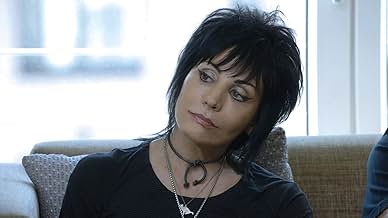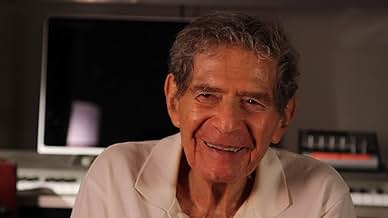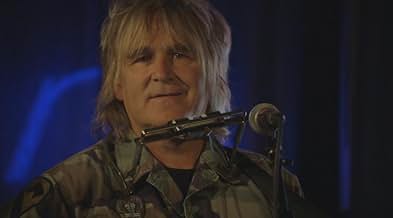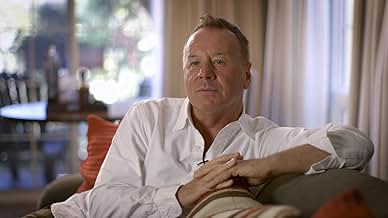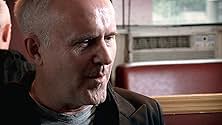In 1982, a small radio station battles to bring the New Wave to America.In 1982, a small radio station battles to bring the New Wave to America.In 1982, a small radio station battles to bring the New Wave to America.
M. King Adkins
- Self
- (as Dr. M. King Adkins)
Pete Byrne
- Self - Lead Singer, Naked Eyes
- (as Peter Byrne)
- Director
- Writer
- All cast & crew
- Production, box office & more at IMDbPro
Featured reviews
For anyone over 40 this movie will bring them back to a time when new wave was hitting the US. It is the story of the radio station in NY that brought the music here first and played over 1500 new wave artists in its short time on the air. The movie tells the really interesting story of life at the radio station when all these acts were young and unknown - so many to go on to be mainstays on 80's radio. But at the time for me and so many it was a revelation to hear this music.
Great interviews with the artists and producers. So much great music and live footage in the movie. You are transported back to 1982 and the movie brings back that fresh feeling of hearing things for the first time, along with great interviews that tell us what the artists were thinking.
Instant classic!
A DJ or Exec from WLIR must've taken a vacation to LA about one or two or three years? after KROQ was already giving New Wave/Punk/Ska/PowerPop it's proper due. Taking credit as though WLIR is the first, and not giving credit to the original radio stations (KROQ in LA) that broke these bands is just a pat-on-the-own-back-Sham, especially to people who might be taking it in as the truth.
The other review referencing the station as "Late to the Party" nailed it.
Gave 3 stars for content and love of the genre, but it'll get exposed...Adam Carolla's upcoming doc about KROQ will provide the accurate timeline for New Wave and will be understood as the truth.
I echo the sentiment of the Southern California reviewers. "New Wave" music was introduced into North America in many locations in parallel. We had a local university radio station playing this music circa 1977-78. It took a while for the mainstream FM stations to introduce this music to their playlists but it was here and available for listening well before 1982 on FM radio, TV and album imports. I suppose it was a gamble for an FM radio station to go full New Wave in 1982 but certainly not pioneering as this documentary alludes to.
The documentary was somewhat confusing, jumping all over the place with respect to artists and dates. Information presented chronologically would have been clearer.
The documentary was somewhat confusing, jumping all over the place with respect to artists and dates. Information presented chronologically would have been clearer.
The music that moved me during the best years of my life. The insight and history of the performers and the songs had me spellbound.
WLIR, founded in 1959, was the first FM radio station in Long Island, broadcasting mainly showtunes and jazz-pop. In the '70s, WLIR changed their format to Southern and progressive rock, but in 1982 became an underground phenomenon by being the first radio station in the country to play New Wave (mostly coming out of the UK) and post-punk music (in other words, exchanging the Allman Brothers and Blue Öyster Cult for Duran Duran and U2). Thumbing their nose at US record labels--who usually dictated to radio stations what they should be playing--the station became home to a lot of European music acts who were big in their home countries but brand new to Americans. In the days before the internet, radio "found" the new music/tomorrow's hits (for instance, WLIR broke Frankie Goes to Hollywood's "Relax" six months before the rest of the US heard it), and the gratitude from the musicians--many of whom are interviewed here--is genuine and joyous. Something different, to be sure, and very entertaining for music buffs. *** from ****
Did you know
- Quotes
Michael Pagnotta: It was a movement in technology. And the difference between what Vince Clarke or Martin Gore, as opposed to what Keith Emerson could do, was completely different. The battery of keyboards that Wakeman and Emerson had to have on stage, I was the biggest Yes and the biggest ELP fan, so I love the sound of the Moog synthesizer. But, that was not a portable situation.
- SoundtracksMy Way
(Comme d'Habitude)
Music by Claude François and Jacques Revaux
French lyrics by Gilles Thibaut
English lyrics by Paul Anka
Performed by Sid Vicious
Details
- Release date
- Country of origin
- Official site
- Language
- Also known as
- Посмей быть другим
- Filming locations
- Los Angeles, California, USA(on location)
- Production companies
- See more company credits at IMDbPro
- Runtime
- 1h 35m(95 min)
- Color
Contribute to this page
Suggest an edit or add missing content


